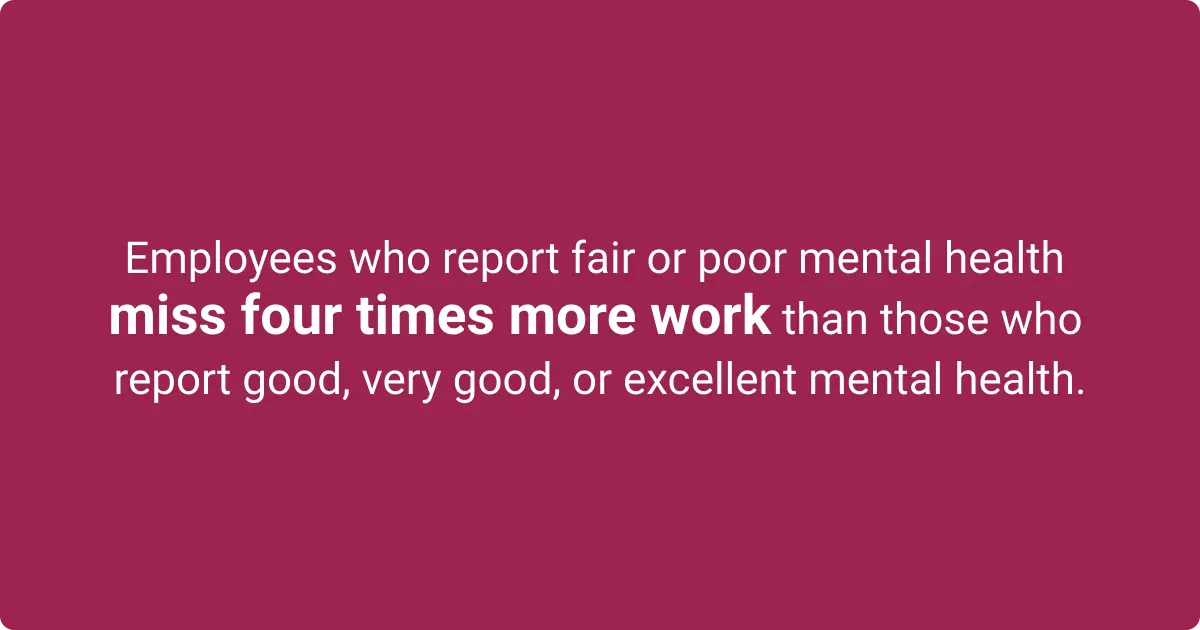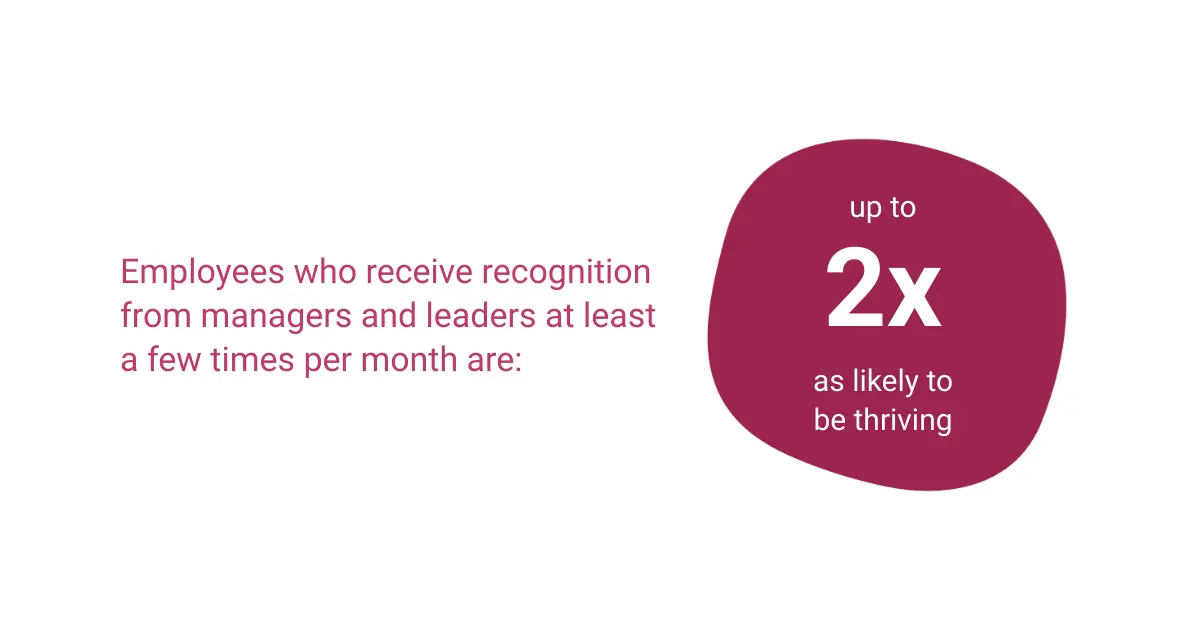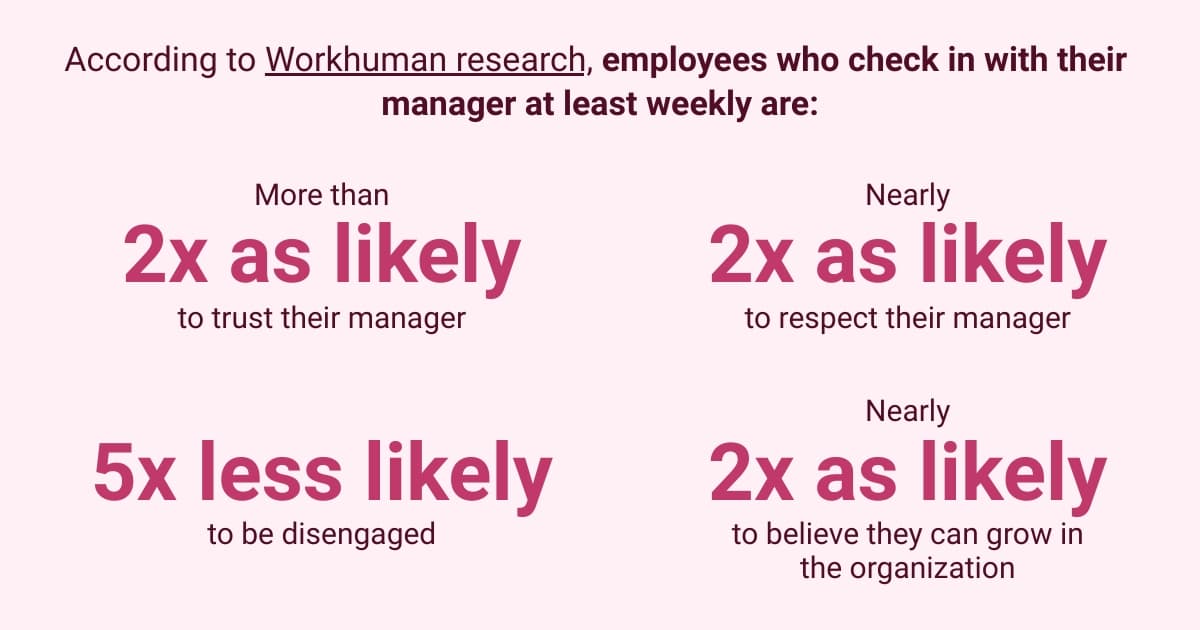How to Be a Good Manager: Leave a Positive Mark on Your Team and Organization

What’s good for your people is good for your business, so as you can probably guess, competent people management is vital to improving the performance of both.
Competent, effective people managers create lasting value and empower their team members to be stronger and more capable workers even after they move on. This value extends beyond short-term wins and translates into a thriving, engaged workforce, a positive company culture, and a sustainable path to success.
Keep reading to learn how to be a good manager – one who leads with a human-first mentality and, at the end of the day, drives profits.
The importance of competent people management
People-oriented leaders work in service of their organization’s overall mission, working to develop, hire, and support their team members. Building up your team does more than just uplift individuals; it strengthens your organization.
Effective management creates a ripple effect that sustainably supports individuals so they are in a healthy place to do their best work, therefore benefitting the business. Research has foundOpens in a new tab that good leadership impacts the business as a whole – companies with strong managerial processes perform better on key metrics from productivity to profitability.
People leaders are responsible for developing their employees' skill sets to anticipate and fill gaps. A recent Springboard survey on the State of the Workforce Skills Gap in 2024Opens in a new tab found that 70 percent of leaders believe skill gaps in their organization are affecting their business, and this number is only expected to grow in the coming years.
What’s more, people leaders significantly influence employee’s mental health. In fact, one Deloitte study on 2024 Global Human Capital TrendsOpens in a new tab found that managers have as great an impact on an employee’s mental health as their spouse and a greater impact than their therapist.

Workplaces flourish when they prioritize their employees. Discover how a people-first leadership strategy can cultivate a positive environment that employees want to stay in for the long haul. Read our free guide to become the people leader your team needs.
Imagine the domino effect that ineffective people leadership will cause on your organization’s success. Employees will be underdeveloped, unhappy, unproductive, and on their way out the door. Your organization will see decreased employee engagement, increased turnover, and poor business results.
So, what can be done? Let’s look at ways people leaders can create a lasting, positive effect.
The actions and habits of an effective manager
There are four key components to being a successful manager:
- Prioritizing your people
- Building a strong team
- Continuously learning and growing
- Focusing on long-term impact
Let’s talk through practical ways you can start making a lasting impact on your team’s goals and work.
Grow external networks
We have all been told that "who you know" can be just as important as "what you know." By making introductions or attending industry events with a team member, you can create valuable connections that might not have happened otherwise.
These connections can become a springboard for discovering new roles, learning about emerging trends, and staying ahead of the curve. The effort required on your part is minimal, yet the long-term impact on your direct reports can be significant.
Develop your team’s transferable skills
The future of work demands adaptability and agility. Charismatic business leaders recognize the growing importance of transferable skills like communication, collaboration, and problem-solving that can be applied across different roles and industries. By building a team proficient in transferable skills, you ensure your organization can adapt quickly and fill skill gaps internally.
Consider incorporating cross-functional projects where team members can hone soft skills like emotional intelligence and teamwork. Investing in training programs focused on critical thinking and adaptability equips your team to handle unforeseen challenges and learn new skills.
Celebrate your people for who they are
Each person that reports to you is more than their output. Invest the time and effort to understand who a team member is as a person, what unique abilities they bring to the team, and how you can adapt your employee management skills to best support them.
If you’re managing a first-time parent, what can you do to ensure their transition to parental leave is as smooth and stress-free as possible? If you’re managing someone with a chronic illness, make it clear to them that you see their challenges and that it’s OK that they’re working when it’s best for them. Have empathy for what your whole team may be going through, and take care to help them through each situation.
A mindful leader will take time to celebrate the achievements in their personal lives outside of work hours – from running a marathon to buying a home. When an employee feels seen and valued as a whole person, they are more likely to be engaged, motivated, and loyal to the organization.
With Workhuman's Life Events platform, you can celebrate life's milestones and boost employee mental health by 23%. Make every personal achievement part of your workplace culture.
Champion visibility and recognition
A “thank you,” or shout-out for great work does more for your team than make them feel seen and appreciated – it also shapes how others perceive them and their skills and provides employees with a living record of their achievements and success.

Workhuman is the #1 provider of employee recognition software. When you opt for recognition done right from Workhuman, you don't have to settle for second-rate recognition.
Support work-life balance
Encouraging a healthy work-life balance reduces stress and boosts employee wellbeing, leading to a happier and more focused workforce. A balanced employee will deliver higher quality work, be more productive, and be less likely to burn out, benefiting both employees and the company.
Managers can set clear expectations and boundaries by respecting off-work hours, modeling behavior, and encouraging employees to log off, leaving employees to recharge and return energized.
Be flexible
Flexible work schedules reduce stress and empower employees to manage personal needs, fostering a more inclusive environment. A happier, well-balanced workforce brings their best selves to work, boosting creativity and productivity – a win-win for employees and the company.
Managers can support this by offering flexible start/end times, encouraging hybrid schedules, and trusting their team to get their work done at their own pace, allowing employees to thrive in their own rhythms.
Empower with delegation
By outlining goals and assigning tasks suited to individual strengths, you will unlock your team’s potential. Focused work fosters ownership, boosts autonomy, and encourages decision-making skills. Freeing up your time allows you to focus on important tasks that might directly relate to better results for the company.
To ensure delegated tasks go smoothly, clearly explain the task's purpose, desired outcome, and resources available. Encourage questions to ensure everyone is on the same page. Don’t forget to let go and take a step back. Delegation doesn't work when a leader micromanages every task they hand off.
Share valuable feedback
Empowering your reports with feedback goes beyond simply pointing out areas for improvement – it's about fostering a growth mindset and propelling them towards their full potential. A key aspect of this is understanding the lasting impact feedback can have on an employee's self-perception.
Positive feedback can be a powerful tool. Highlighting a team member's exceptional problem-solving techniques during a recent project not only reinforces that behavior it can also plant the seed of "I'm good at this" in their mind. This newfound confidence can translate into increased initiative and a willingness to tackle more challenging tasks.
Did you know that 65% of HR executives are seeking better quality manager-employee check-ins for feedback and coaching?
Workhuman's Conversations® solution is the tool you need. Enhance your interactions for more meaningful and effective employee engagement. Click here to discover how Workhuman can transform your feedback process.
The same principle applies to constructive feedback. When delivered thoughtfully, it can open doors to learning and development. By focusing on the impact of an action rather than the person's character, you empower your people to see themselves as capable of improvement.
This shift in self-perception fuels a desire to learn and adapt, leading to stronger performance in the long run.
Build a diverse team
Diverse teams bring a wider range of perspectives and experiences to the table, fostering creativity, problem-solving, and an inclusive work environment. By hiring diversely, managers have a unique opportunity to help close leadership gaps for underrepresented groups and open doors for future talent, creating a virtuous cycle of innovation and success.
Actively seek out job boards and professional organizations focused on underrepresented groups to expand your talent pool during recruitment.
Check in often
One-on-one meetings give managers a direct line into their team’s workload and wellbeing far beyond bi-annual performance reviews. These frequent, recurring opportunities offer a chance to get to know the person that you’re working with and give you clues on how you can provide support and be a better manager for their particular work style.
Beyond the benefits of an improved relationship with your team, check-in conversations give managers insight into potential problems that could negatively affect your team’s goals and strategy or the business.

Focus on your own professional development
Effective management is an ongoing process. As such, people leaders need to take part in their own career development and participate in the professional development offered to team members.
People leaders should do what they can to continually learn how to be better managers. This might look like attending management training, learning new skills, staying updated on best practices, and adapting their leadership approach as times, teams, and workplace cultures change.
Wrapping up
When you prioritize the creation of lasting value, you're not just managing a team; you're building a foundation for long-term success. This approach fosters a sense of purpose and ownership among your employees and leads to a culture of employee engagement that fuels innovation, productivity, and a competitive edge for your organization.
Remember, there's no one-size-fits-all approach to how to be a good manager. By focusing on strategies that empower your team, cultivate their skills, and foster a sense of value, you'll become an effective manager who leaves a lasting, positive impact on your team and your organization.
See also: 10 Best Business Conferences or Leadership, Management, and More
About the author
Alicyn Zall
Alicyn Zall is a writer dedicated to creating a more equitable and fulfilling workplace. With a focus on actionable, data-driven insights, her work empowers individuals and organizations to foster positive change. In addition to her contribution at Workhuman, Alicyn has served as an editor at Harvard Business Review where she developed books and articles about mental health and the future of work.